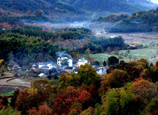"Diaosi" pop culture is also a direct reflection and projection of social factors in the youth. While the rapid development of market economy widens the gap between the rich and the poor, the self-deprecating manner such as "Diaosi" originates exactly from the social reality of wealth polarization as well as popular mate aesthetic standards. Many young people are faced with the reality that even if they make every effort to struggle, their wealth is still far behind the "tall, rich and handsome", and the "white rich and pretty". Therefore it is easy to understand their complex feeling of "Diaosi", which contains their dissatisfaction about the reality and powerlessness and helplessness to change the situation; and their envy and jealousy against as well as the distain toward the "tall, rich and handsome", and "white rich and pretty".
At the same time, the development of the market economy also makes people pay more attention to wealth and money when measuring a person's success and value. The spouse choosing standards which emphasize economic conditions and appearances (although not universal) easily raise a group sense of powerlessness or helplessness in the youth. This is not just a natural response to the reality of the gap between the rich and the poor, a helpless expression on their own disadvantages, but also an expression of self-doubt of abilities, lack of confidence, and lack of self-acceptance, and more likely a false attribution for the fault – complaining their parents for not providing them with favorable conditions. Of course, the same social reality could also give rise to the spirit of struggling for self-improvement. Being a "Diaosi" is not one's own fault, but one must face up to reality and rely on their independent struggles.
We should face the "Diaosi" pop culture with right attitude by understanding it, adapting to it and developing it – understand the underlying needs of the youth conveyed by such cultural phenomenon, adapt to their unique way of expression, and respond to their needs through a developing perspective.
【1】 【2】
We recommend:






























 Underground voices:grassroots singer in subway
Underground voices:grassroots singer in subway


![]()
